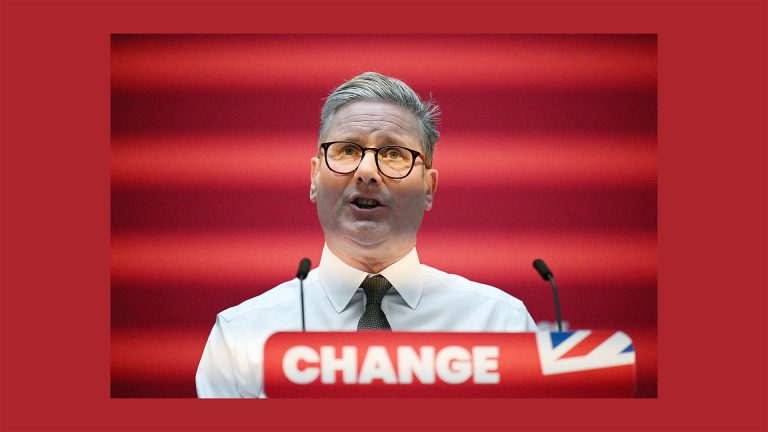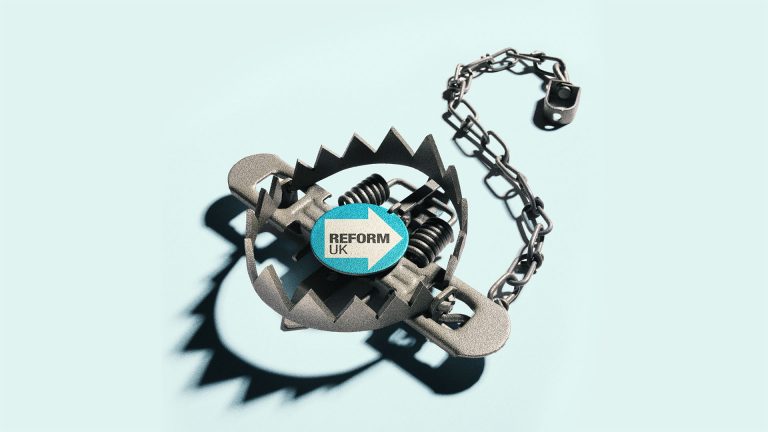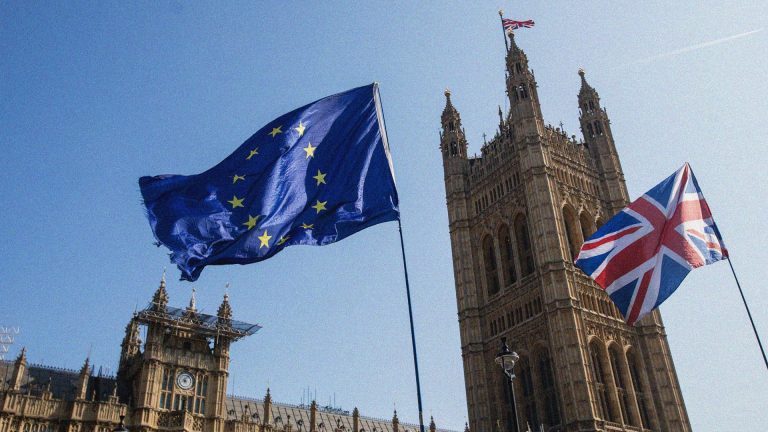It’s not yet been a year since Keir Starmer’s historic landslide win, but Labour MPs are already worried about losing power.
The disastrous May 1 election results, which saw Reform UK surge in Brexit-supporting areas and Labour lose two-thirds of the council seats it was defending as well as the Runcorn & Helsby parliamentary seat, have freaked out some of Starmer’s backbenchers – and some Cabinet ministers. One told the Guardian that they thought “Winter fuel will lose us the next election, it was a terrible mistake.”
Last week, 45 MPs from the Labour Red Wall Group called on the PM to “act now” and get to work winning back voters in northern England and the Midlands. On May 7, Starmer sent out the unflappable Pat McFadden to field complaints from them and other backbenchers in a meeting described as “angry” and “robust”.
While their immediate focus is on Starmer’s decision to cut benefits and the winter fuel allowance, the triumphs of Nigel Farage are also raising fears concerning the government’s much-vaunted Brexit reset – due to take a significant step forward at the UK-EU summit in Downing Street on May 19.
Sources in London and Brussels have been briefing for weeks that the centrepiece of the summit will involve a formal security pact that allows British firms to compete for European defence contracts funded by EU loans.
The cost for participating in this scheme will, sources say, likely mean Britain paying into EU funds beyond security programmes, as well as a deal on youth mobility. As things stand, it is expected that the two sides will reach an agreement on EU citizens under 30 being allowed one-year visas to travel and work in the UK, meaning higher EU immigration. It is also expected that Britain will make future concessions on fishing rights, though details on this are less clear.
All these are emotive issues for hardline Brexiteers, the sorts of people already frothing about immigration and fish-sovereignty. It doesn’t take a wild leap of imagination to see how this mob will respond when they see Starmer and Ursula von der Leyen congratulating one another on their new deal.
With Reform on the march, it might be tempting for those around Starmer to advise that he slam the brakes on Brexit and focus on domestic issues and combatting Farage. However, doing so would be short-sighted and probably won’t lead to any long-term gains for the government or country.
Now more than ever, Starmer needs to keep a cool head and stick to moving ahead on Brexit tightrope he’s been walking since taking office. He must keep nudging Britain closer to Europe, but wants to do so without drawing too much attention. And he most definitely cannot inch backwards.
The prime minister has been stuck between a rock and a hard place since winning the election. His reluctance to rub out red lines on membership of the single market or customs union upsets the Europhile liberals who comprise a significant portion of his support, and the New European’s readership. Conversely, even the smallest steps towards cooperation on uncontroversial issues like rules of origin draw cries of betrayal from hardline Brexiteers.
Despite the howls of disapproval we are bound to hear from the usual suspects, a security pact and youth mobility deal are relatively small fry in the grand scheme of things. And Labour will insist that the prospect of strengthening the UK economy by removing some Brexit red tape is worth what they are conceding in negotiations.
That doesn’t mean hardline Remainers will be thrilled, however. What’s likely to be agreed later this month is still miles from anything resembling single market or customs union membership; even further from rejoining the bloc. They will, at best, be seen by the most ardent Europhiles as small stepping stones to faster and deeper integration with Brussels.
Pro-Europeans, it should be said, have been feeling increasingly confident in recent months. The erratic return of Donald Trump to the White House has brought with it tariffs, defence spending demands and anti-European hostility that have pushed Britain and its European partners closer together. Though the UK and US have reached a deal on tariffs that comes with its own compromises, the public appetite for improving relations with Europe is reflected in almost all opinion polls.
From a Europhile perspective, the next steps for Britain might look obvious: treat the success of the first UK-EU summit as a launch pad to bigger and better things. It is likely that they will see Starmer’s ability to negotiate with the EU as encouragement to push for things outside Labour’s manifesto red lines – including single market and customs union.
This is where the PM will need to shut out the noise from both sides and stick to his policy of not spooking the horses. Yes, the public supports closer ties to Europe. But moving too fast risks handing Farage a weapon with which he can batter the government.
Those of us with long memories will remember how effective Farage can be when he has a bit of wind in his sails. Under his leadership, UKIP went from being a joke to transforming the political conversation on Britain’s right.
In 2013, they took 22% of the popular vote in local elections; in 2014, they outright won European elections. He was able to hold David Cameron’s feet to the fire, force the referendum on Brexit and change British politics forever. And, it’s worth noting, this all happened despite opinion polls broadly supporting EU membership.
It is natural that a triumphant Farage smelling blood will worry the incumbent government. Even with opinion polls where they are on Brexit, it’s always worth remembering that a decent chunk of the Eurosceptic establishment is still active and vocal in 2025.
“Farage will probably turn back to Brexit at some point as it’s an easy stick for him to hit Starmer with,” says Rob Ford, professor of politics at the University of Manchester. “If he wants to make an issue of Europe, he will have many supporters in the political system and in the media who think the Tories made a mess of Brexit and want to stop any form of reset happening. Farage could easily become their figurehead.”
Starmer must find a way to tune all of this out and stick to his plan. Appeasing Farage on Brexit would almost certainly not do much for Labour’s overall electoral prospects.
As Ford puts it: “There is no Brexit policy Starmer could come up with that would win over vast swathes of Reform voters for whom Brexit is a key issue. Nothing he does will ever be good enough or match what Farage says he will do, even if what Farage says he will do is impossible.”
Starmer should also keep in mind that Farage’s most recent success hasn’t had that much to do with Brexit. Immigration and other current populist issues are hypothetical in a way that Brexit isn’t. The public has seen first-hand the impact of leaving the European Union.
It’s only really those most devoted to the cause who make the dishonest arguments about Covid vaccine schemes or increases in services exports being clear examples of Brexit dividends. For the vast majority of people, more expensive food, longer queues at the border and hits to British businesses is what Brexit is all about.
It’s these people who want a sensible, balanced reset of relations with the EU. But despite what the polls might say, Starmer is convinced that doesn’t mean they want to rush back into the EU or hold another referendum, either. At least for the time being.
Since taking office, most people around the PM have managed to keep a relatively clear head on Brexit, tuning out the noise and resisting the urge to comment publicly, one way or the other. This has at times frustrated counterparts in Brussels, who jokingly say the greatest achievement of the Brexit reset is convincing anyone that it actually exists.
But after May 19, if all goes to plan, Starmer will finally have proof that his way of handling Brussels can produce results. A security pact and a sensible deal on youth mobility would be a vindication of his strategy and should give him the confidence to ignore those who shout the loudest.
Of course, it won’t be enough to excite the loudest Europhiles (or many New European readers) and it will be considered a betrayal by Farage and co. But the vast majority of the public do not hold extreme views on Brexit – they just want it to be quietly fixed.








